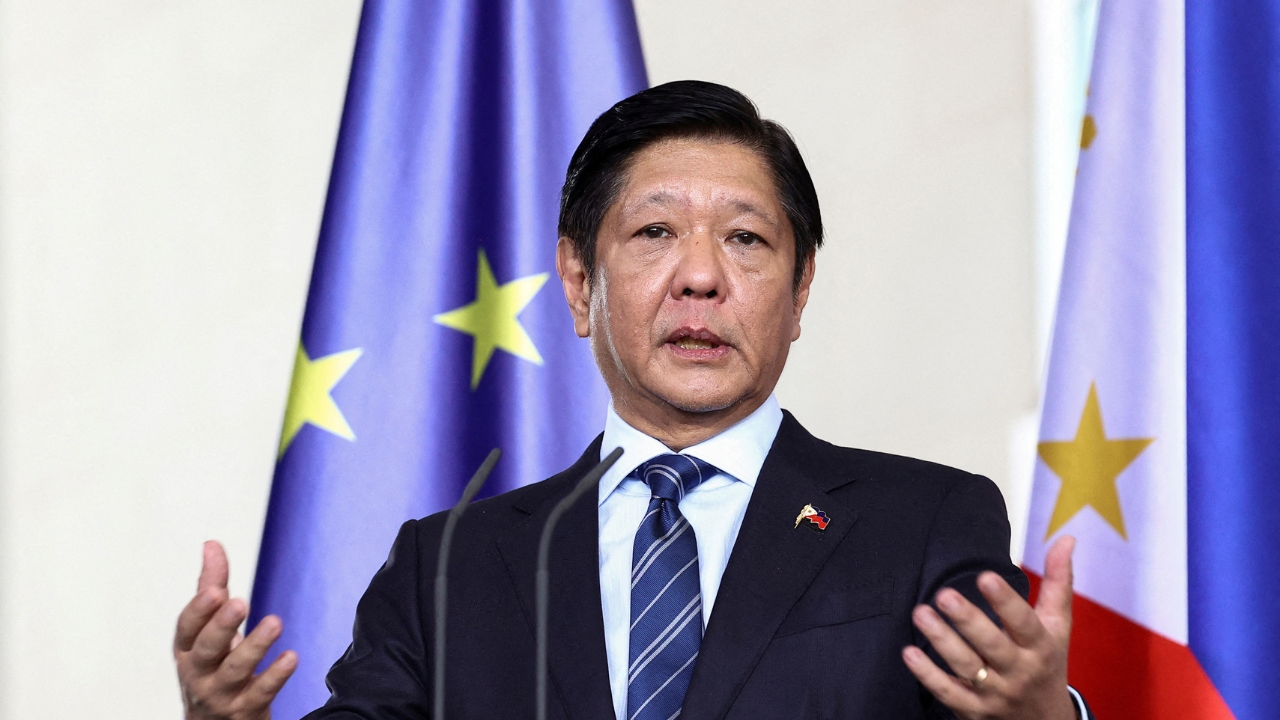
Luigi Mangione Appears in Court Over Killing of In
Luigi Mangione appears in court over murder of UnitedHealthcare CEO. Lawyers seek to dismiss state c

Photo:Reuters
The recent uproar over the Philippine government’s handling of flood control projects has opened new debates about accountability, governance, and public trust. For a country battered frequently by typhoons, heavy rains, and surging floods, disaster preparedness is not merely a technical issue but a matter of survival for millions. Yet, this time, it has also created significant political tension, as opposition forces sought to use the crisis to weaken President Ferdinand Marcos Jr. by urging the country’s defense and military chiefs to abandon him. Their refusal to defect has provided the administration with a vital anchor of stability.
This controversy deserves close attention not only because of its political drama but also because it reflects deeper weaknesses in the way infrastructure, governance, and disaster planning intersect in the Philippines.
The Flood Crisis and Public Outrage
Widespread flooding in recent weeks has devastated communities across several provinces. Homes were destroyed, farms submerged, and thousands of families displaced. In a country where more than 20 typhoons hit every year, flood control measures are meant to be safeguards against recurring disasters. However, anger mounted when citizens and experts alleged that government projects intended to curb flooding were marred by poor planning, inefficiency, and even corruption.
Critics claimed that billions of pesos meant for dikes, drainage systems, and early-warning infrastructure were either misused or left incomplete. They argued that as climate threats intensify, citizens cannot afford repeated promises that never materialize. This simmering discontent soon became ammunition for opposition leaders, who accused the Marcos administration of betraying public trust.
Calls for Defection and the Military’s Response
In the storm of anger, some political groups went a step further by calling on military and defense leaders to abandon the President. This was a dangerous move in a country where the military historically played decisive roles in leadership transitions, including the downfall of Ferdinand Marcos Sr.
But in a departure from turbulent chapters of the past, the present leadership firmly rejected these calls. Defense Secretary Gilbert Teodoro emphasized that the armed forces would not involve themselves in political maneuvers. He reminded Filipinos that the military’s loyalty lies with the Constitution and the Republic, not short-term political interests. Armed Forces of the Philippines (AFP) Chief General Romeo Brawner Jr. echoed this, pledging that the AFP’s duty is to protect the people, ensure stability, and help citizens suffering from natural disasters.
By standing firm, the country’s defense and military establishment shielded national governance from slipping into uncertainty. Their response also underlined an important principle: the uniformed service exists to serve people’s security and welfare, not politics.
A Bigger Crisis: Trust in Governance
Still, military loyalty does not soften the public’s frustration. For decades, the Philippines has struggled with weak infrastructure, congested urban spaces, and governance gaps that make disasters deadlier. Every storm or heavy downpour becomes a test of survival because drainage systems often fail and riverbanks collapse.
The larger issue is not only natural disasters but how they are managed. Citizens demand accountability—where did the money for projects go? Why are promised flood defenses delayed or incomplete? Such questions strike at the heart of governance.
President Marcos has acknowledged that infrastructure shortcomings remain, and he has pointed to climate change pressures as compounding the problem. While this admission shows realism, it does not absolve the government of responsibility. For many Filipinos, the promise of long-term flood defenses rings hollow when every rainy season still brings mass evacuations and lost livelihoods.
Political Risks for the Marcos Administration
The rejection of defection calls by the defense and military may provide relief to Malacañang for now, but deeper challenges remain. Public anger can erode political capital quickly, especially when discontent unites around visible failures like crumbling dikes and submerged roads.
For President Marcos, the crisis is a reminder that natural disasters can rapidly evolve into political storms. This has happened before—storm response, corruption allegations, or lack of relief efforts have shaken even strong administrations. If flood-hit communities continue to feel betrayed, protests and oppositional movements could gain stronger ground.
Analysts caution that without meaningful reforms and transparency, the administration’s grip could weaken in the face of resilient public frustration.
What Needs to Change
The Philippines cannot continue to treat flood disasters as seasonal misfortunes. Instead, structural reforms are needed:
Transparency in spending: Government must ensure that every peso allocated for flood control projects is traceable, accounted for, and publicly reported.
Completion of stalled projects: Communities have long demanded that infrastructure announced with great fanfare actually be completed before the next storm strikes.
Climate-sensitive planning: Given rising sea levels and worsening rains, urban planning and building designs must evolve. Drainage systems should be modernized to fit future conditions, not outdated engineering.
Community resilience: While large projects matter, local solutions such as mangrove rehabilitation, proper zoning, and strengthened evacuation centers also save lives.
Accountability for failures: Officials, whether national or local, who misuse or mismanage funds should face real consequences.
Without these steps, no amount of military loyalty or presidential assurance will restore public trust.